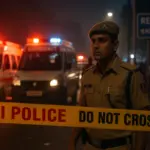The World Health Organization (WHO) teams are undertaking critical missions in Gaza amidst intense hostilities, delivering essential supplies to hospitals and assessing the growing needs. These missions pose high risks due to the conflict’s severity and the challenges of operating in areas witnessing heavy fighting.
Hospitals such as Al-Shifa and Al-Amal Palestine Red Crescent Society in Northern and Southern Gaza respectively are not only providing medical care but also sheltering thousands of displaced individuals seeking refuge from the conflict. WHO, alongside partners, has delivered crucial supplies like fuel to keep essential health services running, medical supplies for hospitals, and materials to support kitchens aiding the displaced.
The situation in Al-Amal Hospital is dire, with damages from recent strikes impacting critical infrastructure like the radio tower and ambulance dispatch system. This disruption affects a vast population, leaving only a few functioning ambulances. The overcrowding in these facilities, with limited sanitation facilities, poses an increased risk of disease outbreaks.
WHO staff observed tens of thousands of people fleeing the heavy strikes in Khan Younis and the Middle Area, highlighting a dire need for humanitarian aid amid the escalating crisis. The mass displacement strains health facilities, exacerbates overcrowding, and heightens the risk of infectious diseases.
Gaza’s healthcare infrastructure is already overwhelmed, with several hospitals either partially or minimally functioning. The safety of medical staff and the continuity of operations are increasingly compromised due to constrained supply routes and the desperation of people en route to hospitals.
The WHO Director-General, Dr. Tedros, emphasized the urgent need for a ceasefire to protect civilians, facilitate aid distribution, and begin the long road to reconstruction and peace. The resolution from the United Nations Security Council, while holding hope for improved aid distribution, has yet to have a substantial impact on the ground.
Dr. Tedros underscored the critical need for immediate humanitarian aid and a ceasefire to alleviate the suffering of civilians, ensure the safety of aid workers, and initiate efforts toward reconstruction and lasting peace in Gaza.
Northern and Southern Gaza









